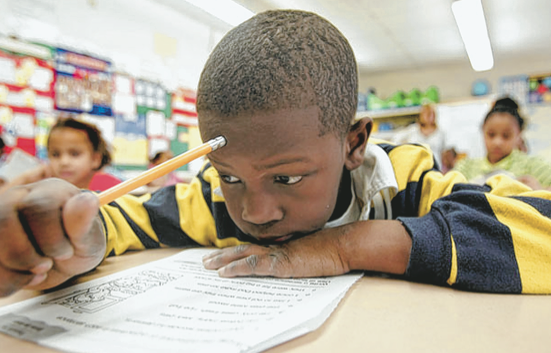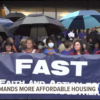August 9, 2018. The Charleston Chronicle.
Six Charleston-area organizations, a mental health professional, a doula, and a data expert have come together to form a coalition designed to improve the wellbeing and potential of children affected by adverse circumstances in Berkeley County, South Carolina.
Called the Berkeley Early Education and Care Collective (BEE&CC), the coalition was one of 139 groups that applied to take part in the Networks of Opportunity for Child Wellbeing (NOW) Learning Community program of Boston Medical Center’s Vital Village Network, an initiative funded through a $2.2 million grant by the Robert Wood Johnson Foundation. BEE&CC was one of ten groups selected across the United States to take part in the program.
Led by backbone organization Berkeley County First Steps, BEE&CC member organizations include the Charleston Area Justice Ministry, Children’s Museum of the Lowcountry, South Carolina First Steps, South Carolina PASOs, YWCA Greater Charleston, and three individuals: Stacy Albarran, a mental health professional, Simone Richie Lee, a Berkeley County doula, and Alexa Stephens, a data expert and independent consultant who will serve as BEE&CC’s project coordinator.
Under the NOW program, BEE&CC will improve its members’ ability to provide all Lowcountry families with resources to build a strong foundation and nurture healthy children by forming a supportive community of practice and sharing knowledge and data among its member organizations and NOW Learning Communities across the nation. Vital Village will provide the group with a robust set of knowledge, skills, and tools to scale and sustain equitable transformation of early childhood care, education, and health systems in their individual communities.
“We’re grateful to NOW and the Robert Wood Johnson Foundation for this funding, which has tremendous potential to change maternal and child health outcomes in South Carolina’s largest county,” said Adrienne Troy-Frazier, executive director of BEE&CC’s lead organization, Berkeley County First Steps. “Through this grant we hope to use the expertise, knowledge, and local relationships nurtured by our member organizations and fellow Learning Communities to expand on ways to reduce the effects of adverse experiences in childhood.”
The need for this program in South Carolina, even as early as the time a woman conceives, is significant. According to America’s Health Rankings, black mothers are more than four times more likely to die in childbirth than white mothers in South Carolina, and according to the March of Dimes, in 2015 nearly 20% of infants were birthed by women in the state receiving inadequate prenatal care. South Carolina’s black infant mortality rate is more than double that of white infants, at 11.2% for black infants versus 4.8% for white infants in 2015, the most recent year for which data is available.
Participating NOW Learning Communities, which include coalitions in Alabama, Arizona, Colorado, Illinois, Minnesota, New Jersey, New Mexico, New York, and Washington in addition to BEE&CC, will kick off the 18-month initiative with a one-day action lab, attend semi-annual learning symposiums, and participate in monthly check-ins and webinars in which the coalitions will learn from each other. They will also have access to resources in the NOW Online Forum, focus groups and surveys that multiple members can co-design, and technical assistance and training.
“It is clear that adverse social environments and experiences in early childhood are key drivers of inequities in health and development and have a durable impact on wellbeing and life chances,” said Renee Boynton-Jarett, MD, ScD, founder of Vital Village and a pediatrician at Boston Medical Center. “Communities across the country are responding by identifying how systemic inequities, institutional racism, and historical and community trauma harm health, but also cultivating community-based solutions and developing sustainable neighborhood opportunity structures to promote child wellbeing, which is transformative.”
Launched in 2016, NOW builds on Vital Village’s network approach to build the capacity of other local communities and coalitions across the country working to promote child wellbeing, align systems of care and education in early childhood, and improve neighborhood opportunity structures that promote optimal wellbeing and reduce inequities in child health and education—all through a trauma-informed lens.
View original article.






